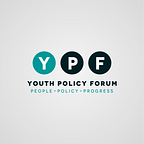POLYTHENE BAN IN BANGLADESH
Nishat Tasnim Anika, Md Ajmain Adil Nakib
About 8 million tons of plastic are released into the oceans each year and, with that status quo, it is estimated that by 2050 there will be more plastic than fish. The excessive use of polythene bags contributes to various issues, especially in the urban area. The non-biodegradable features of plastic bags leave their destructive effects on soil and water. The polymers form a matrix at the water and soil level. As a result, the agricultural land is barren, resulting in pollution of crops yielding from it.
It is worthy of noting that Bangladesh was the world’s first country to ban thinner plastic bags in 2002. After 17 years, though, it seems that the ban is not fully coming into effect. To understand the primary reason behind the lack of enforcement of the polythene ban, we need to dig deep and go through the history of the ban and many other aspects behind it.
History
Although the history of plastic is over a hundred years old, plastic products, particularly polythene shopping bags, were widely introduced in the early 80s in Bangladesh. They became a grave danger to the atmosphere within five years, said environmental experts.
Then, Bangladesh became the world’s first country to ban those bags. But local markets tend to be flooded with them because of a lack of control. Under Section-9 of the Bangladesh Environment Protection Act (2010), Rule 6(ka) of Clause-5 has placed restrictions on the manufacture and use of polythene shopping sacs. The production and sales of environmentally damaging goods are regulated according to the statute. While plastic bags are widely available, their position in the market is not admitted by any plastic trader or businessman.
Alarmingly, the Department of Environment has no valid data on how much plastic bags are used in Bangladesh every day. An environmental organisation estimated in 2018 that the residents of capital Dhaka use 14–15 million pieces of polythene bags every day.
According to a study by the Environment and Social Development Organization, Bangladesh disposes of 87,000 tonnes of single-use plastics annually in the rivers which are eventually channelled to the Bay of Bengal.
Why the ban is not working
The polythene ban law has not experienced any robust implementation since its inception. Authorities claim that they conduct anti-polythene raids frequently in the local shops and storage units. However, it is difficult for them to reach the factories as they mushroom in different outback locations. According to Poribesh Bachao Andolan, nearly 1,000 polythene factories operate across the country, most of which are located in old Dhaka. Yet no import duty has been imposed on the raw materials of polybags to date. On the other hand, there is a concern about job loss of thousands of workers currently employed in the industry.
According to the Environment Court Act, mobile courts can take actions against illegal production and use of polythene. However, carrying out operations often gets complicated due to the intervention of local politicians or syndicates. There has been another issue of the undermanned workforce. The number of officers across the country with magistracy power is insufficient to carry out the regulatory operations provided that they have to deal with defilers like brick kilns and heavy industries. Lack of coordination between the police and environment departments is also evident.
The lack of awareness in public is blatant. However, the people are not solely liable because polybag is a low-involvement product and customers are provided with them in the form of packaging. Although jute bags like Sonali bag are invented as an eco-friendly alternative, they are still in the inaugural stage due to lack of financial and infrastructural support. Again, shifting the conventional choice of the consumers would not be an easy task because of the low cost and convenient use of polybags. Hence if jute bags are manufactured in a large-scale, their prices may become competitive. But as long as the cheaper bags are in the market, the jute bags are not likely to gain popularity. Like a vicious cycle, the plastic or polythene bags’ prevailing in the market is their raison d’etre.
Banning plastic bags in 2018, Kenya successfully curbed 80% usage of plastic bags whereas Bangladesh, the first country to prohibit polybags who also happens to take pride in the ground-breaking invention of Sonali bag, could not check flooding of plastic bags in 18 years. Rather it spiked to the degree of clogged waterways which provides a fertile breeding ground for mosquitoes.
